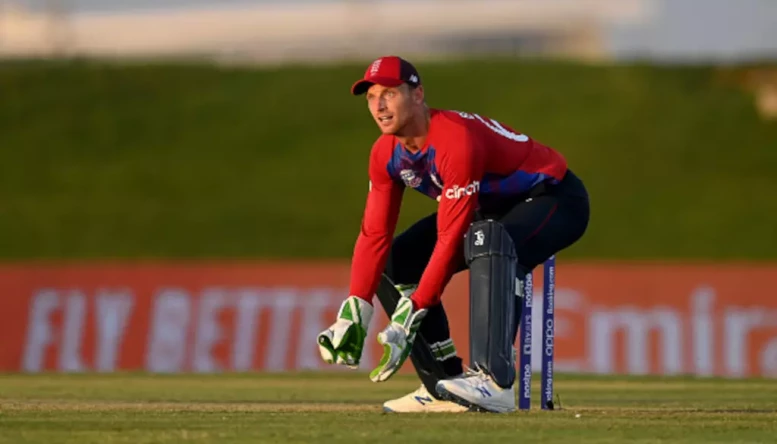T20 World Cup 2022: The contrasting approaches between India and England that led to India's defeat
India's T20 World Cup 2022 campaign was at last put to an end courtesy of England registering a thumping 10-wicket win in the semi-final at Adelaide on Thursday (November 10)
 Jos Buttler: "We always want to start fast and aggressive,"
Jos Buttler: "We always want to start fast and aggressive,"And while there are many issues with the loss and how things went down, the vital thing to note was just how different the approaches of the two sides were.
India, put in to bat first, were understandably cautious at first. However, as the innings went on, it became evident that the pitch had no powerful demons.
England, to their credit, bowled well in the middle overs – thanks in no small part to the spin tandem of Adil Rashid and Liam Livingstone. But it was not as if they were getting significant assistance off the deck.
Adil Rashid and Liam Livingstone focused on hitting full lengths and mixing up their variations. They did concede a couple of boundaries here and there but generally applied the squeeze well.
However, the intent – or total lack thereof – of the Indian batters is something that needs to be questioned.
India's starts in this World Cup have been the subject of many debates, with their openers Rohit Sharma and KL Rahul not necessarily getting things off to rollercoaster starts.
This World Cup has served many a good bowling deck, so going hell for leather from ball one has not always been an option.
Yet, as mentioned earlier, the pitch had no noticeable demons, and whatever early swing the England bowlers got disappeared after the ball began to grow old.
In contrast, England's openers were aggressive from the outset – both Alex Hales and Jos Buttler looked to not only find the boundary often but also rotated the strike well when the situation called for it.
It helped that they were served with some highly tepid Indian bowling, but that's not their fault. They can only play the opposition in front of them and do so to perfection.
Even against the spinners, Alex Hales and Jos Buttler looked to play aggressively – especially once they were set.
Jos Buttler even clobbered a 100 m-long six straight down the ground; such was the confidence he was playing with at one point.
Again, it helped that they were facing an Axar Patel with one trick up his sleeve in an arm ball and a Ravichandran Ashwin who looks to contain rather than dismiss in the shortest format of the game.
But yet again, this isn't England's fault. They played the hand they were dealt and left the Indians hapless and deflated.
Indeed, Jos Buttler's comments after the match felt pointedly accurate. "We always want to start fast and aggressive," said the wicketkeeper-batsman.
And while it is tempting to point out that England have not done that for most of the tournament, they did so in their last two matches against Sri Lanka and India.
And both came about for very different reasons. Against Sri Lanka, they knew the middle overs would be tough to score due to a slow pitch and a softening ball. Against India, they knew an excellent quick start would quickly help them overhaul the target.
England's approach in both games, therefore, was spot on. The same cannot be said about India, which is why they find themselves on the flight back home.
Editor's Picks
- 01
Brendon McCullum: England ready to be 'really brave' in team selection for India series
- 02
Diogo Jota inspires Liverpool surge as injuries fail to dampen Premier League lead
- 03
Cameron Norrie ready to go toe-to-toe with the big boys after stellar Australian Open run
- 04
Maxwel Cornet confident of scoring run after opening West Ham account